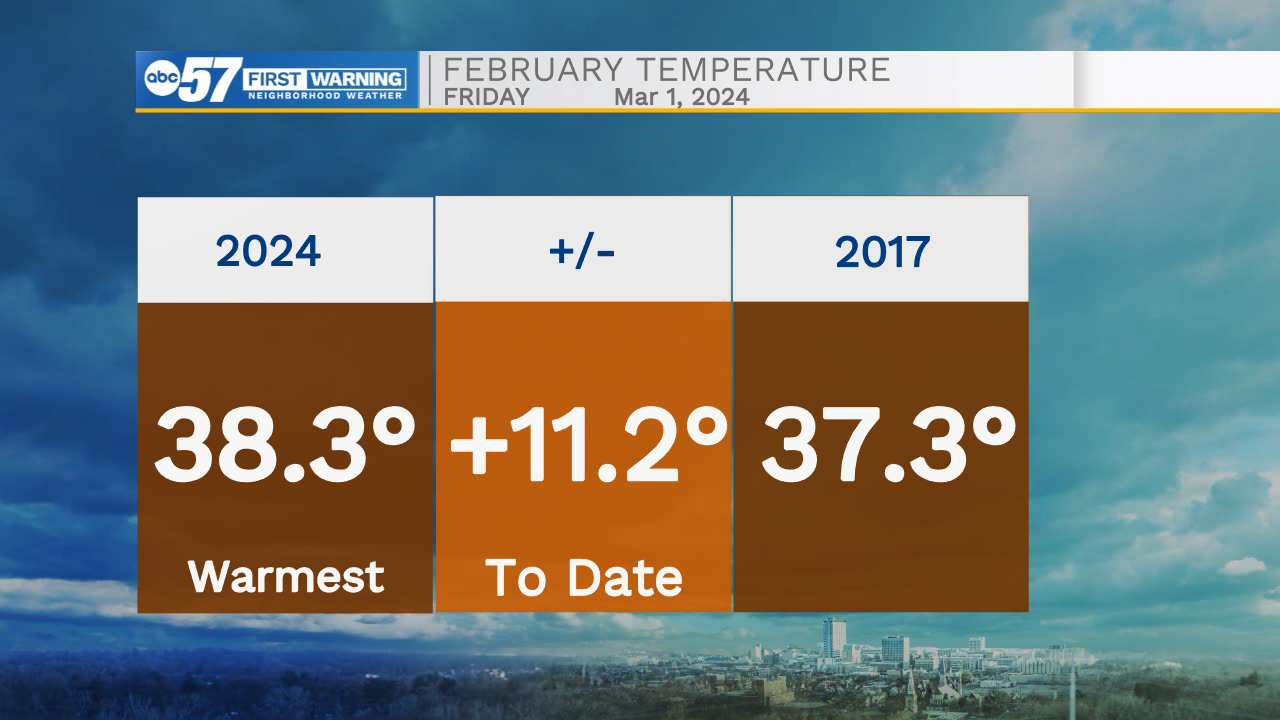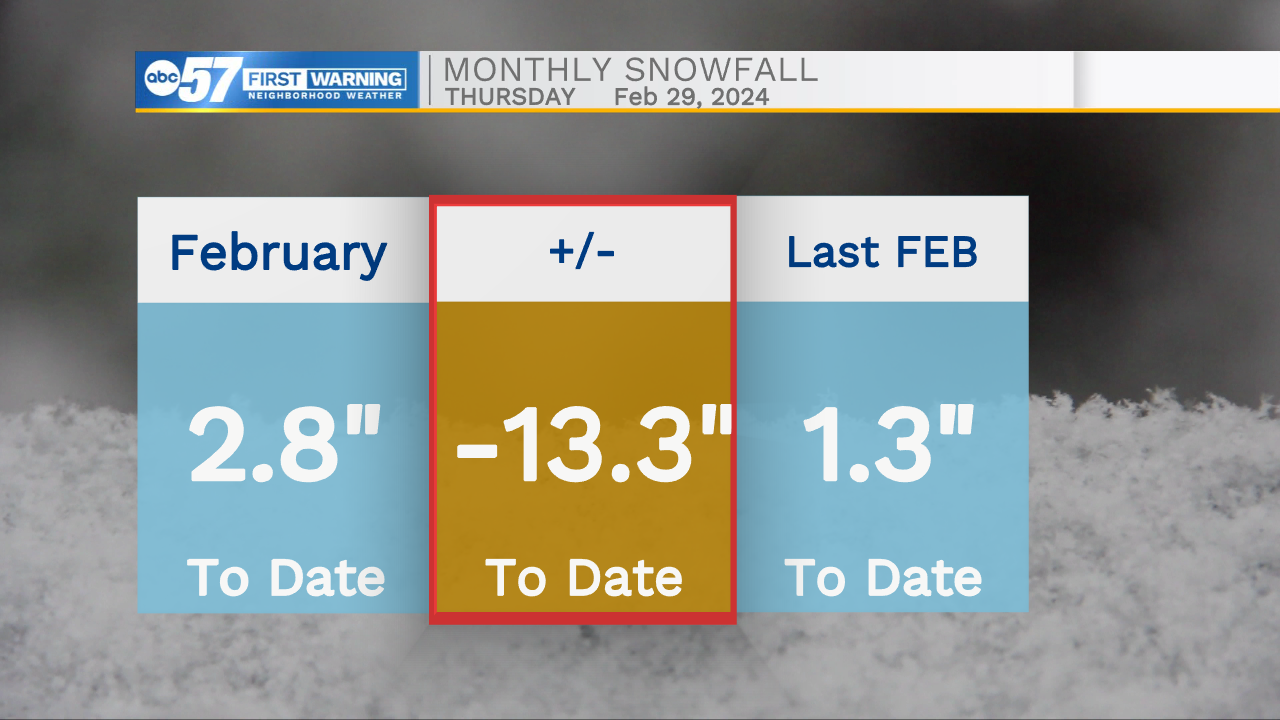Winter 2024 concludes as one of the warmest in history for Michiana
SOUTH BEND, Ind. -- Michiana's winter 2024 is now the second warmest in recorded history and also one of the least snowy.
The average temperature between December 1 and February 29 (the start and end of meteorological winter) of this year was 34.7F, less than a degree shy from the record warmest winter set back in 1931-32.
Only 26.4" of snowfall was recorded this winter, making it the fourth least snowy winter since 1950 when snowfall observation data became more comprehensive.
Last year's winter (2022-2023) still holds the record for lowest snowfall total, recording only 17.7."
February 2024 is now the warmest February ever recorded in South Bend, clocking in an average temperature of 38F, an astounding 11F above the normal value for the month.
And while temperature was well above normal this past month, rain and snow fell short.
The second month of 2024 recorded only 2.8" of snow the entire month, more than 13 inches below average.
Less than an inch of rain fell the entire month of this February.
This most recent December became the second warmest December in South Bend history with an average temperature of 39.3F.
Temperatures in January averaged out to finish just over two degrees above normal as a warm start to the month was subsequently followed by a breakdown of the polar vortex, plunging our area into single-digit highs and below zero lows for several days.
The lake effect snow band on January 19/20 produced over three feet of snow in La Porte County and set a new daily snowfall record of 5.9" for South Bend on the 19.
Ice cover on Lake Michigan also reached historically low values when max ice coverage peaked at 16% in the middle of January.
Normally in mid-January to February, more than half of Lake Michigan is covered in ice.
A very strong El Niño event is almost certainly responsible for this winter's record-breaking warmth.
However, the frequency with which winters are entering the conversation for warmest and least snowy is more evidence of climate change across our area.





